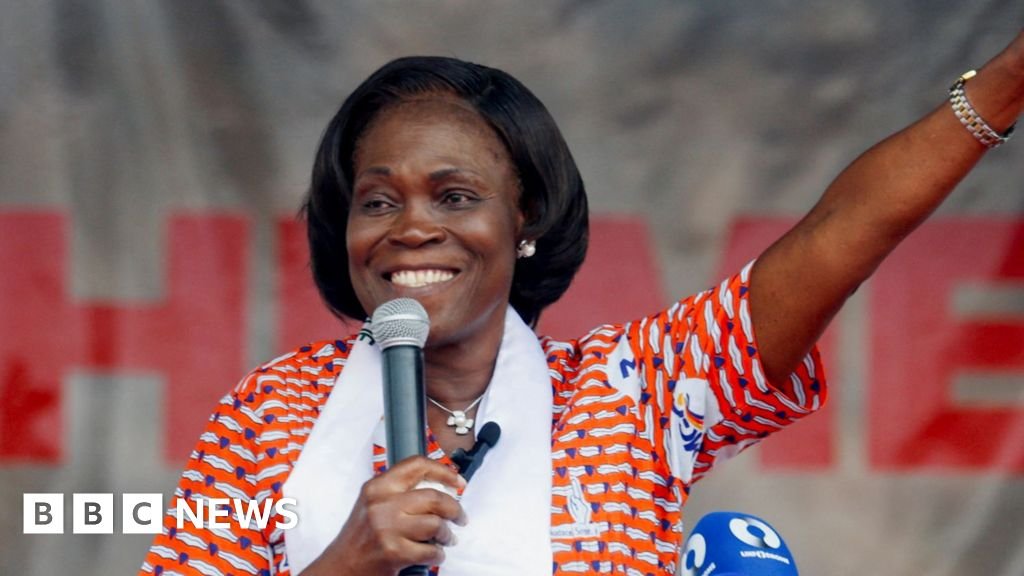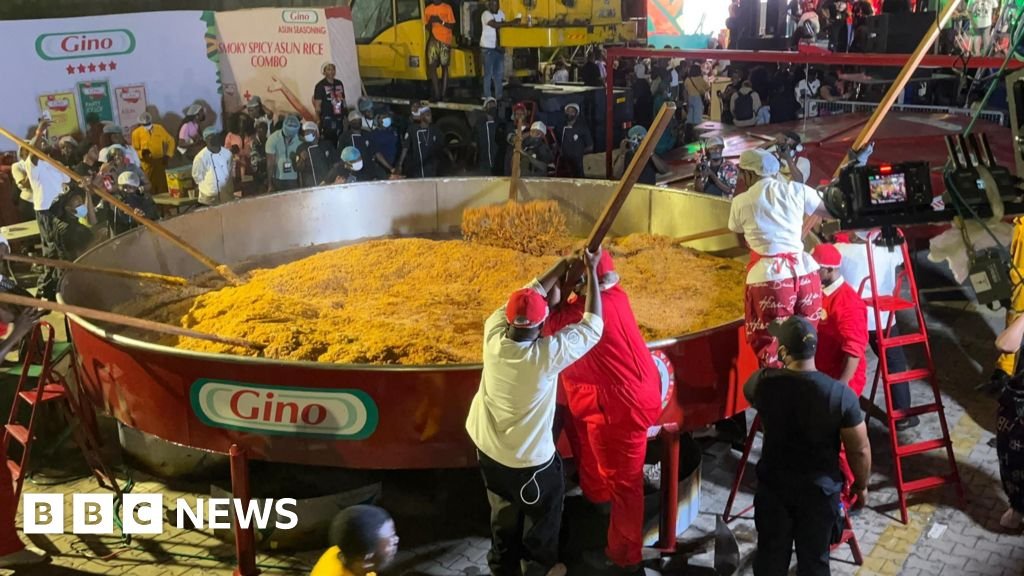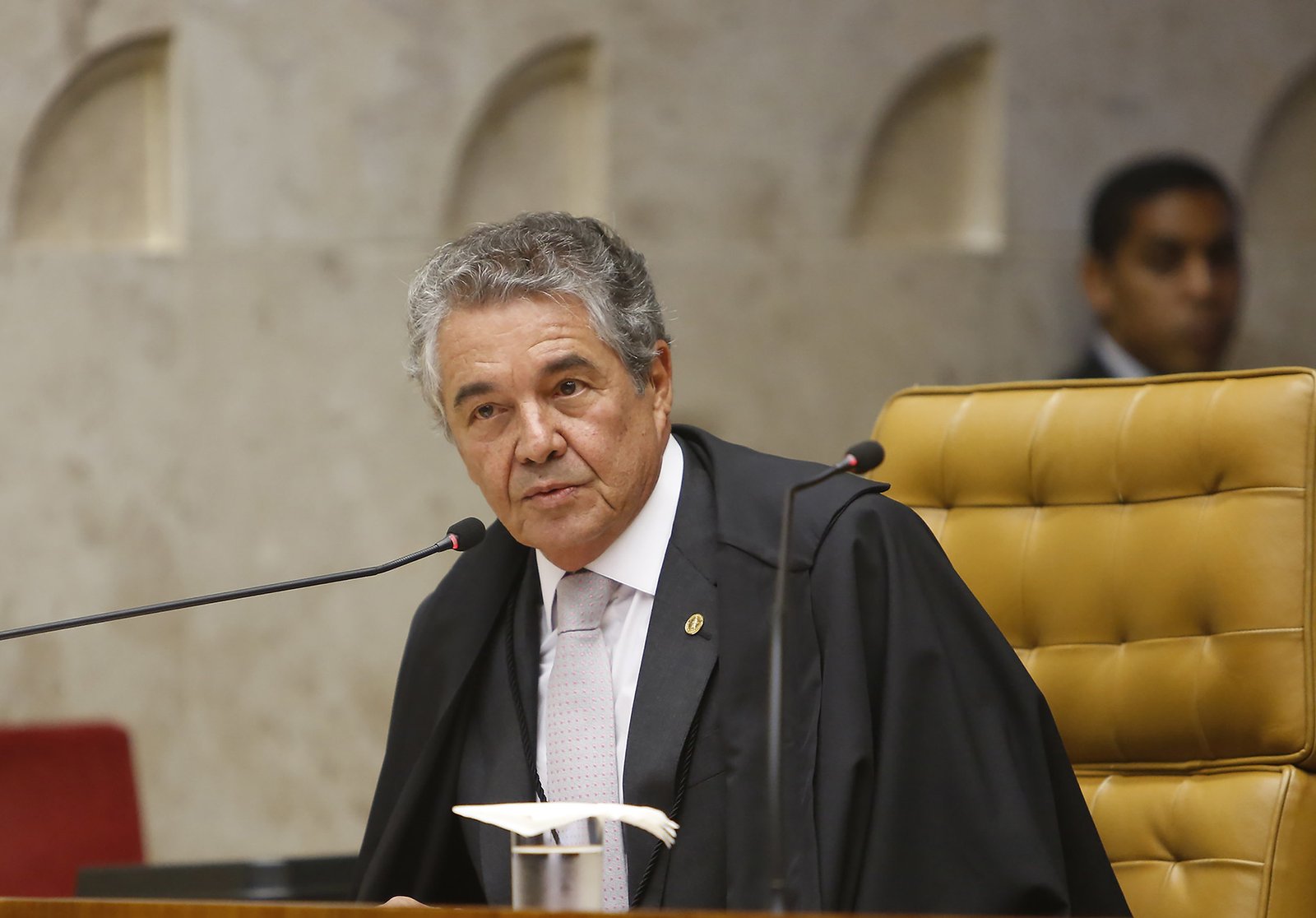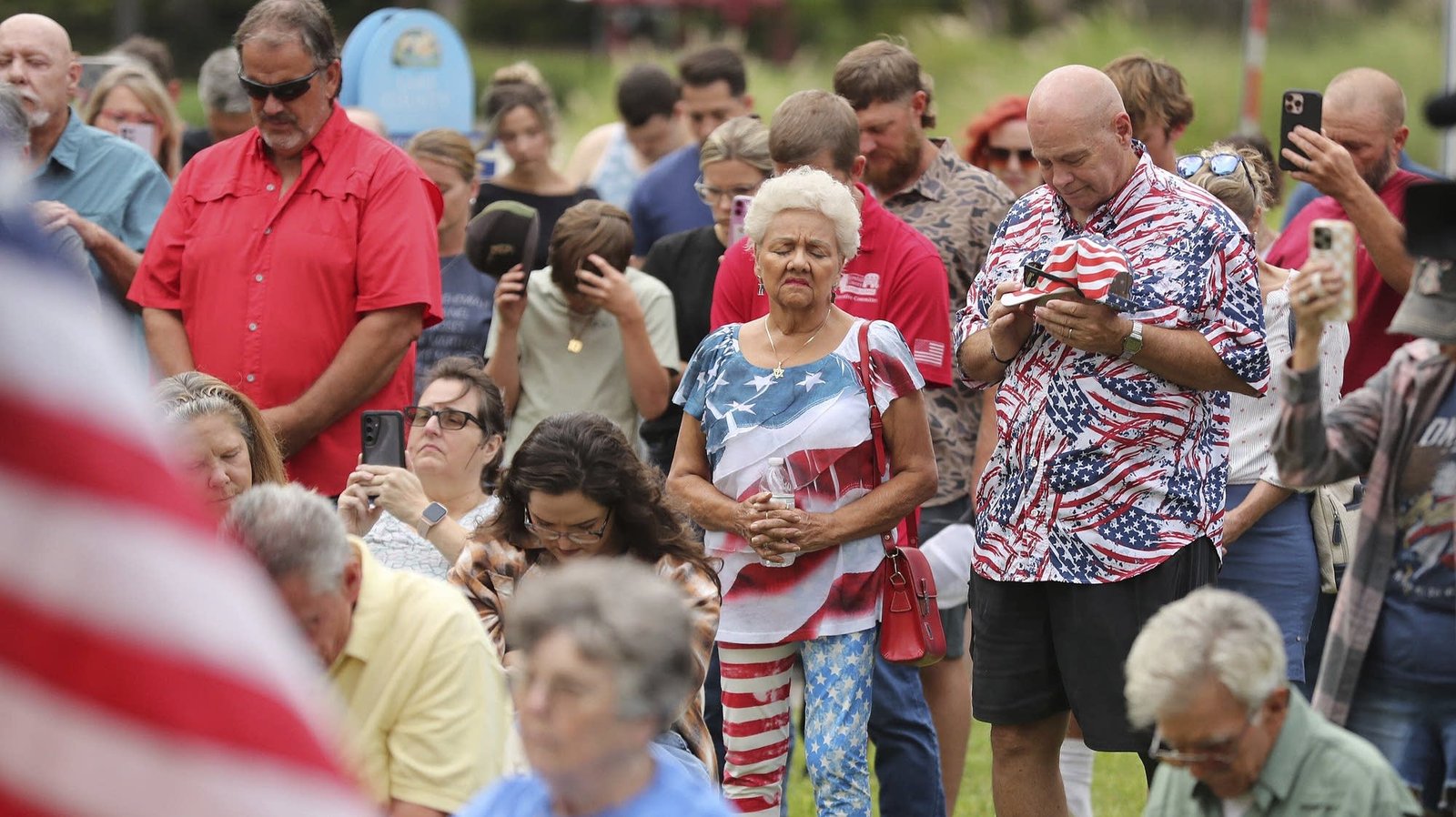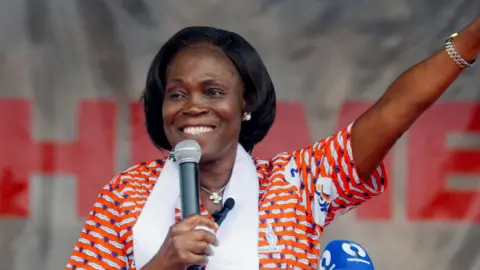 Reuters
ReutersFormer Ivory Coast First Lady Simone Gbagbo has gone from hiding in a bunker in an attempt to avoid arrest to defiantly announcing she will run for president.
In an extraordinary comeback, the controversial 76-year-old was this week surprisingly allowed to contest October’s elections, calling on supporters to help “build a new nation”.
For years, Gbagbo worked side-by-side with her ex-husband Laurent, and was considered to be the power behind his throne.
Now, with a criminal conviction and a divorce behind her, she takes centre stage as a presidential candidate in her own right.
Gbagbo was Ivory Coast’s first lady from 2000 to 2011 and was dubbed “the iron lady” due to her reputation for toughness.
While her supporters fondly called her “maman” (French for “mum”), Gbagbo was feared within the party she set up with her husband, the Ivorian Popular Front (FPI).
“All the ministers respect me. And they often consider me above them,” she told French magazine L’Express during her husband’s presidency.
At rallies, Gbagbo often invoked her evangelist Christian faith, firing off spirited, eloquent speeches in support of her husband.
Gbagbo met Laurent in 1973, at a time when both were powerful figures in Ivory Coast’s trade union movement.
Gbagbo had degrees in history and linguistics, and as a teacher, was a key member of various educators’ unions.
The couple’s relationship was also built on the struggle against then-president Félix Houphouët-Boigny.
The Gbagbos protested against Houphouët-Boigny’s autocracy, which lasted for 33 years, calling for multi-party democracy.
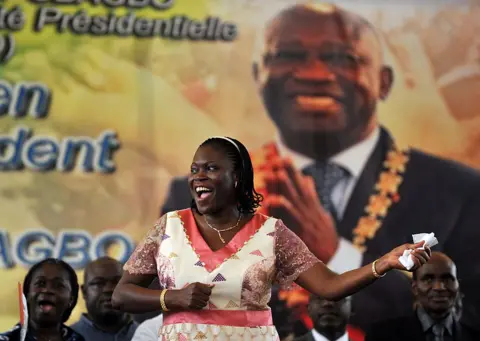 AFP via Getty Images
AFP via Getty ImagesAs a result of their activism, the pair were jailed several times.
“I engaged in political struggle against the former regime alongside men,” Gbagbo recalled In her l’Express interview.
“I spent six months in prison, I was beaten, molested, left for dead. After all those trials, it’s logical that people don’t mess with me.”
In 1982 the pair co-founded the FPI. That same year, Laurent fled to France following harassment from Houphouët-Boigny’s security forces and Gbagbo was left to raise the couple’s twin daughters alone.
After six years apart, Laurent returned and the pair married in an intimate ceremony, with less than 10 guests present.
The Gbagbos soon had further cause for celebration. In 1990 Houphouët-Boigny finally caved in, allowing the first national elections in Ivory Coast since independence three decades earlier.
Laurent decided to run for president, his wife a key figure in his campaign.
“Laurent had the good-natured gab, Simone the uncompromising discourse,” French newspaper Le Monde said of the Gbagbos’ political partnership.
In less flattering terms, Ivorian opposition newspaper Le Patriote wrote: “Laurent Gbagbo – expansive, warm, and devious… his wife, Simone Ehivet-Gbagbo – enigmatic, cold, and secretive.”
In an election marred by allegations of widespread rigging, Laurent lost the presidential race to Houphouët-Boigny by a landslide.
He did, however, win a seat in the National Assembly and five years later, his wife gained one too.
Gbagbo campaigned for her husband once again when he ran for president in 2000. This time, he won, after all other opposition candidates had been excluded by the military leaders who had seized power.
But, once a champion of democracy, the new president began adopting draconian measures to stifle political dissent. His backing of the concept of Ivoirité, or Ivorieness, pushed soldiers in the north to take up arms and the country was divided in two.
It is thought his wife had huge influence over the security forces, who were used by the administration to silence opposition voices.
Furthermore, presidential elections slated for 2005 were postponed six times, with Laurent saying he needed to establish control of the whole country before he could hold elections, although he eventually agreed to them in 2010.
In a surprise result, he lost to Alassane Ouattara – Ivory Coast’s current president – but refused to accept the result. This attempt to stay put sparked another devasting civil war in which more than 3,000 people died.
After the vote, Gbagbo fiercely defended her husband’s decision to stay on, dubbing Ouattara a “bandit leader”.
“The time for debates about the elections between Gbagbo and the ‘bandit leader’ is over,” she said in an address to supporters.
“Our president is firmly established in power and he is working.”
Eventually, as pro-Ouattara forces backed by French troops advanced on the presidential residence, the couple took refuge in a bunker. They were arrested there, and hauled off to a hotel in Abidjan, Ivory Coast’s main city, effectively ending the five-month conflict.
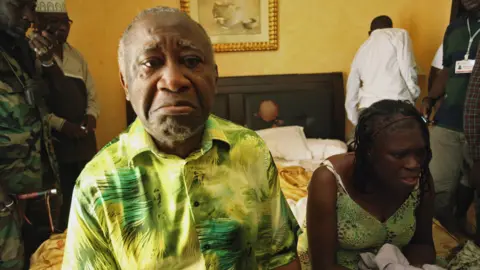 Reuters
ReutersAt her trial five years later, Gbagbo described her detention at the hotel.
“I myself arrived with my buttocks exposed, my nudity exposed. I was subjected to several attempted rapes in broad daylight, all in the presence of French soldiers who were filming,” she told the court.
Gbagbo was sentenced to 20 years for “attempting to undermine the security of the state”, disturbing public order and organising armed gangs during the civil war.
However, just three years later, President Ouattara granted Gbagbo an amnesty in what he said was a move to foster reconciliation. This is why she was allowed to stand in next month’s election, despite her conviction.
The International Criminal Court (ICC) pursued separate charges against Gbagbo in 2012, also relating to the civil war, but they were later dropped.
The ICC went after Laurent too – they charged him with crimes against humanity and he spent seven years in custody at The Hague.
The couple have long maintained their innocence, rejecting all charges against them as politically motivated.
Laurent was eventually acquitted by the ICC and returned home to Ivory Coast in 2021.
But there would be no tear-jerking reunion with his wife – days after landing on Ivorian soil, the former president filed for divorce, having fostered a relationship with journalist Nady Bamba.
Gbagbo hit back at her husband – through her lawyer, she accused Laurent of “blatant and well-known adultery” and “abandonment of the marital home”.
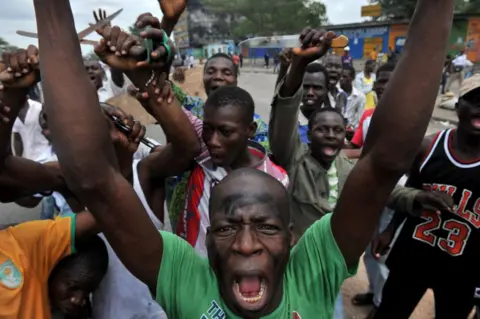 AFP via Getty Images
AFP via Getty ImagesThe former first lady has since been quietly and methodically rebuilding her political base, following her break from the FPI.
She founded a new party, the leftist Movement of Capable Generations (MGC) and in her campaign for next month’s election pledges a “modernised” and “prosperous” Ivory Coast.
Gbagbo’s candidacy is not only politically significant but symbolically powerful in a country where women remain largely underrepresented in national leadership.
Only 30% of Ivorian parliamentarians are women, and few have held senior roles in government.
Gbagbo’s reputation for activism and democracy has been tainted, but she is still seen as one of the strongest challengers to Ouattara in next month’s poll.
A political veteran with powerful rhetoric, she looks set to gain the backing of her husband’s supporters, after he was barred from running himself.
But in this election, the spotlight will be firmly on Simone Gbagbo. And should she win the presidency, the “iron lady” would make history as Ivory Coast’s first female president – yet another milestone in a turbulent, four-decade long political career.
Additional reporting by Nicolas Negoce in Abidjan
More Ivory Coast stories from the BBC:
 Getty Images/BBC
Getty Images/BBC
